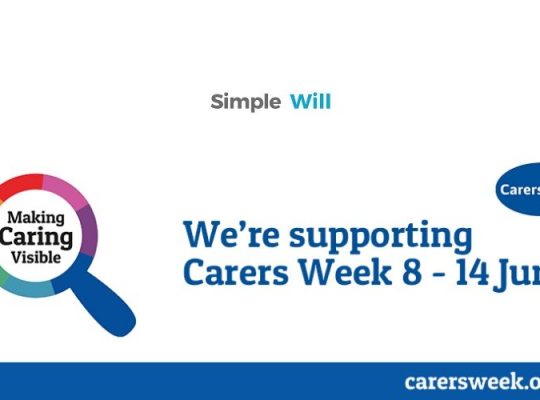Dying in the UK is an expensive activity. But if you’re dead, it doesn’t matter right? Wrong! The real impact is on those left behind.
The person responsible for sorting out someone’s estate and affairs is burdened with responsibility and sometimes debt. But you can mitigate their burden by planning for the inevitable.
We’re here to help you understand the true cost of dying. We’ll be explaining just how much things cost, and what steps you can take to get organised to limit the financial and administrative burden on your family. Believe us – they will thank you for it.
What is the Average Cost of Dying in the UK?
Dying in the UK comes at a cost. To help you understand what you can do to mitigate some of the costs and ensure your loved ones aren’t burdened with the expense, we’re going to be taking you through all of the things a typical family has to pay.
Death Certificates
Although having a death registered is free, obtaining copies of the death certificate costs between £8-£12 per copy. If you don’t think you will need that many copies, think again. You will need to produce and often send an original copy of the death certificate to just about everyone when dealing with someone’s affairs (banks, HMRC, funeral homes, energy companies, Solicitors, etc). If you want to speed up the process and send copies to everyone all at once then you will need plenty of copies.
We’d recommend getting no less than 5 copies, which will cost you around £50, depending on your local authority.
Funerals, Cremation and Wakes
Sunlife state that the average cost of funerals in the UK stands at around £9493 – a 3.1% increase since 2018. Sunlife have been tracking the cost of funerals since 2004 and first published the data in their Cost of Dying Report in 2007. In the last 13 years Sunlife found that the average funeral cost has risen by 42%.
If nothing changes this means that in another 13 years the average cost of a funeral will stand at a whopping £13,480.
So why are they so expensive? Let’s have a quick look at what a funeral involves.
- Basic Funeral Costs: These include funeral director fees, Clergy or officiate fees, cremation or burial fees
- Additional Funeral Costs: This includes headstone, memorial, venue hire, catering, flowers, Limo hire, order or service sheets, death notice
While many people are able to save for their own funerals a significant number of people fail to save the full amount required, resulting in families having to find extra funds. Even when people have saved enough it isn’t always possible for the next of kin to get hold of the funds in time. This means a lot of people end up borrowing money, or take out funeral finance until it can be paid back.
The best way to avoid rising funeral costs is to pay towards a prepaid funeral plan. This will allow you to cover the cost of your own funeral and pay for it upfront, meaning your family won’t have to. And the best part? Paying into a prepaid plan means you’ll pay the cost of a funeral plan today and not the cost of a funeral in 13, 15 or 20 years time!
The other additional benefit is being able to plan your send off. Did you know that only 1% of people admit to knowing the deceased’s funeral wishes? If you want it done right, do it yourself with a funeral plan. Take a look at the prepaid funeral plans available and make sure you get one. Spending a few quid now can make all the difference to your family when you die. You’ll be removing any money worries and decision making which can be especially hard when grieving.

Probate
If you die without a Will your estate will be divided according to the rules of intestate. However, an estate administrator will still need to be appointed. This is known as a grant of letters of administration. If the deceased estate is complicated you may need to hire a probate specialist.
Probate specialists, like solicitors will typically charge an hourly fee. If you’ve used a solicitor for anything before you’ll be aware of how expensive this can be. Others will charge a percentage of the final estate value. This could be anything between 1 and 5%. So, for an estate worth £200,000, probate fees could total between £2,000 to £10,000, and this doesn’t include VAT (at 20%). Nor the cost of the probate application fee which costs £215 for estates worth over £5000. If applied for through a probate service or solicitor the fee is £155.
If you die with a Will in place your appointed executors will be responsible for applying for probate. A ‘grant of probate’ gives executors the legal authority to administer your estate.
How do I Know if I need Probate?
Not everyone will need to apply for probate. Jointly owned properties will pass directly to the surviving owners and money will normally be passed directly to a spouse or civil partner. If no Will is left behind or a Will specifies paying beneficiaries then probate will have to be applied for. Check whether you need probate here. (HMRC).

Inheritance Tax
Inheritance Tax is a tax on your estate (property, money and possessions) taken by HMRC after you die.
You don’t need to pay inheritance tax if:
- The value of the estate is worth less than £325,000
- Your estate is being passed to a spouse, civil partner or charity.
- If you give away your home to children; adopted, fostered, step-children or grandchildren the threshold increases to £500,000
If the estate’s value is below the threshold you’ll still need to report it to HMRC.
Inheritance tax is charged at 40% on any amount that is over the threshold. Therefore an estate worth £500,000 will be expected to pay £130,000 in inheritance tax (calculated on £500,000 minus £325,000). According to Statistica 5.13 billion pounds were paid in inheritance tax in 2019-20, and can often mean your family is left to pay thousands of pounds when you die.
There are however ways to legally avoid inheritance tax.
- Give a gift before you die: Although money given to friends and relatives before you die is still counted as part of your estate, if you live for a further 7 years it will become exempt. Be particularly careful if you’re giving away more than £325,000. Always plan early enough to pass on any assets.
- Give £3000 each year: Annual gifts of up to £3000 won’t be subject to inheritance tax. You can also carry your £3000 allowance over to the next year if you don’t pay a gift in the previous year.
- Give To Charity: Leaving money to charities will not be taxed and could be a good way of reducing your estate value to bring you under the tax threshold. It’s a nice thing to do too!
- Make A Will: Making a will is crucial if you want to ensure your assets are distributed in line with your wishes. Using Will writing experts, like Simple Will can help you determine what and how you should leave assets to loved ones that are going to benefit them, rather than the tax man. Dying without a Will means your assets get divided according to the rules of intestate. The rules could mean that your loved ones end up with nothing or lose a vast amount to inheritance tax.
- Place Your Assets into a Trust: When assets are placed into a trust they do not form part of your estate and cannot be subject to inheritance tax. Another great thing about trusts is that they allow you to keep control and protect the asset for the beneficiary. This is most common when leaving things to young or vulnerable people. There are several types of trusts so make sure you get the right one by discussing your options with one of our experts.
Don’t Be A Financial Burden
The fact of the matter is, the cost of dying can be dead expensive (get it?). Since every single one of us will die at some point it makes sense to think about these costs and start planning for the future.
There are things you can do to mitigate any unnecessary or unforeseen charges. Don’t be a financial burden to your family and follow our top tips:
- Set up an ISA: ISAs are a great way of saving and earning tax free interest. Use an ISA to save the vital funds your family will need to administer your estate.
- Get Life Insurance: Life Insurance – 2nd only to having a Will – is probably one of the most beneficial things you can have. Life insurance policies allow you to nominate a beneficiary at the time your death, and are therefore exempt from inheritance tax too!
- Plan Your Funeral: Plan and pay for your funeral by taking out a funeral plan. By paying for your funeral upfront, you’ll only be paying for how much a funeral costs in today’s money. (It’ll be way more in the future). You’ll also be helping out your family by having everything arranged in advance.
- Get a Will: The upheaval caused to families when people die without a Will is heart-breaking. This is particularly true if you aren’t married to your partner (they won’t inherit), or have children under 18. Without an appointed guardian children have to go through the care system. Spare your loved ones the heart ache, the time and expense by putting a Will in place today.
When we think about death, we tend to think of the loved ones we’ll leave behind, and the emotional impact it will have on them. But very few people realise the financial burden it can cause.
It’s a pretty morbid thing to think about but we see it time and time again. Families that don’t know what funeral arrangement to make, partners who can’t afford the cost of a decent funeral, and loved ones that have to try and navigate their way through probate because a loved one died without a Will. We’re here to help families! It is our mission to help people plan for the future, and understand how their death will impact on those around them. Contact us today to find out how we can help.
Get in touch.
Send us your message now. Our team are always happy to help.








